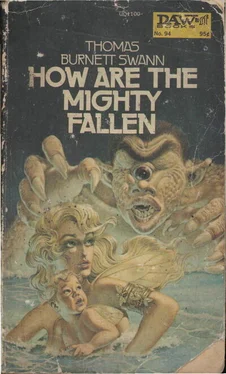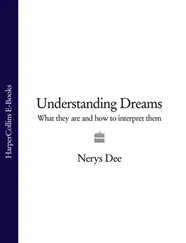Thomas Swann - How are the Mighty fallen
Здесь есть возможность читать онлайн «Thomas Swann - How are the Mighty fallen» весь текст электронной книги совершенно бесплатно (целиком полную версию без сокращений). В некоторых случаях можно слушать аудио, скачать через торрент в формате fb2 и присутствует краткое содержание. Жанр: Фэнтези, на английском языке. Описание произведения, (предисловие) а так же отзывы посетителей доступны на портале библиотеки ЛибКат.
- Название:How are the Mighty fallen
- Автор:
- Жанр:
- Год:неизвестен
- ISBN:нет данных
- Рейтинг книги:4 / 5. Голосов: 1
-
Избранное:Добавить в избранное
- Отзывы:
-
Ваша оценка:
- 80
- 1
- 2
- 3
- 4
- 5
How are the Mighty fallen: краткое содержание, описание и аннотация
Предлагаем к чтению аннотацию, описание, краткое содержание или предисловие (зависит от того, что написал сам автор книги «How are the Mighty fallen»). Если вы не нашли необходимую информацию о книге — напишите в комментариях, мы постараемся отыскать её.
How are the Mighty fallen — читать онлайн бесплатно полную книгу (весь текст) целиком
Ниже представлен текст книги, разбитый по страницам. Система сохранения места последней прочитанной страницы, позволяет с удобством читать онлайн бесплатно книгу «How are the Mighty fallen», без необходимости каждый раз заново искать на чём Вы остановились. Поставьте закладку, и сможете в любой момент перейти на страницу, на которой закончили чтение.
Интервал:
Закладка:
“How did you get him, Jonathan?” He liked to speak the name: Jonathan-“gift of the Lord” (or the Lady?).
“I met the seren in battle, oh, long before Michmash. I was just a boy at the time. The seren was wounded but he could still have killed me, since I was also wounded and very weak. He was too kind, though. The Philistines aren’t a cruel race. We fight them because they keep us from the sea. The seren and I helped each other into his tent. ‘You remind me of my son,’ he said, ‘and I am going to let you live. But I have a wound which will be the death of me.’ He opened a casket of yellowing ivory-the old kind, very rare, from Ophir. ‘Here, take this bird and think of the man who loved you as a son, though he saw you only once. At the proper time you will understand.’”
The quiet notes became words, and the words were an incantation.
“Bird from the Wanderwoods,
Transfixed in flight
By lapis lazuli,
Blue heron
Climbing like my thought
To bluer height,
And open-mouthed in cry
No bird
Has heard,
When you alight
In that blue land,
Will I,
Will I?“
Roughly David returned the bird to its cage. “It’s too much for you to give me,” he protested, though he could not explain his unease. The song had charmed him with its strange, bell-like endings. There were no rhymes in the songs of Israel. “What the heart gives is never too much.” “You never gave the bird to Nathan, did you?” “He would have liked a flute or a shepherd’s crook. I saved the bird for David, who perhaps can understand its song.”
“But we only met today. I’m not even sure if I understand you.”
“Once in a dream, I saw a boy with red hair and big, strong fingers which could coax magic out of a lyre-or choke a lion. We walked together in a field of chrysanthemums, and he understood my heart.”
“Do you have second sight?” asked David, puzzling over the dream.
“Sometimes,” smiled Jonathan. “My mother has it more often.”
“They say,” David ventured, “they say that your mother is a sorceress or a goddess and she came from Caphtor, the Island of Green Magic.”
“I don't know,” said Jonathan. “I truly don’t know what I am or where my mother came from. Does it matter?”
“It makes me afraid of her.”
“And me?”
“A little at first. Not now.” It was Jonathan’s power to make the wonderful familiar or, just as effortlessly, the familiar wonderful. He was not like those witches and sorcerers who frightened or threatened you with their magic; he was not even like his mother, who seemed to have no enemies, but also no intimacies except with Jonathan.
“I was afraid of you too, David. Afraid for you to read my soul and perhaps turn away from me. You see, there is so little time. At night I seem to hear the thunder of chariots and feel the terrible grinding of their wheels.”
“But you are the son of the anointed king!”
“Am I, David? And does that mean that I will one day rule in Israel?”
“Yes, and in Philistia as well, perhaps.”
“Some men are meant to rule kingdoms. Others-”
“To what?”
To love.“
“And you've loved, haven’t you, Jonathan?”
“Not as I would choose.”
“Why, half the women of Israel-wives included-would lie with you.”
Jonathan’s eyes did not waver. “I do not want to lie with the women of Israel or any other land.”
“Not even the virgins with breasts like pomegranates?”
“Least of all the virgins.”
The thought unsettled David: that any young man would avoid a beautiful virgin except out of fear of her father! How would Jonathan get an heir to the throne and perpetuate Saul’s line?
“You’re afraid of being unclean in the eyes of Yahweh? But he only requires that a man keep himself from women before battle.”
“I do fear him,” Jonathan admitted, “but not for the reason you think.”
“And you’ve never lain with a girl?”.
“Never.”
“Or loved one?”
“I love my mother and my sisters. I loved an old woman who used to make my tunics for me. And there was a little girl in Gibeah who brought me a bunch of daisies before every battle. Both of them died of the White Sickness.”
“You know what I mean.”
“Never,” sighed Jonathan. “My mother says that the highest love is a circle, not a crescent. The crescent moon- friendship or love for family-is pure and silvery. But the full moon is orange and abundant and includes all the lesser loves in its circumference.” He paused. “I’ve never known a full moon myself.” He placed a hand on David’s shoulder, like a little bird-perhaps a sparrow-which the least movement would frighten into flight. “Seek your full moon, David. Leave the crescents to me.” He spoke like an old man, with resignation if not bitterness. Did all warriors talk so sadly before or after a battle? Perhaps the death of Nathan accounted for his gloom.
He took Jonathan’s hand and pressed it against his cheek. He was a boy who liked to touch the things he loved, to feel their textures and their emanations, whether they were objects or people, a wooden slingshot or a friend’s hand. The fact that the hand belonged to a prince did not disturb him in the least.
“Your friend died quickly-and he died for you. It was a good death for him, I think. He chose to take your place because he loved you.”
“I envy him,” said Jonathan.
David stared at Jonathan with disbelief: the slender body, swift and deadly in battle and yet, in his tent, as vulnerable as the bird in the ivory cage. He looked at the sad and perfect smile, like the smile of a sculptured young god who appeared to have known all loves or, being a god and therefore beyond men, no loves.
It was wrong, it was terribly wrong for such a man to be sad! Impulsively he enfolded Jonathan in his arms, as if the prince were a lost sheep he had rescued from the wolves, and felt the frantic beating of his heart. He felt too the soft projections from his shoulder blades, almost like rudimentary wings. Was Jonathan a changeling?
Somehow he jarred the bird of lapis lazuli into his song, and the song, after all, was a spell.
“When you alight In that blue land, Will I, Will I?”
Indeed, the prince he held in his arms had suddenly become a sheep which bleated and licked his face! Before he could drop the beast, he held a girl with yellow hair and the tail of a fish and laughter which sang like the surf in the wind. If he dropped her, she had no legs to break her fall.
It was a smiling Jonathan who wriggled out of his arms and stood in front of him on two distinctly human legs.
“You-you are a necromancer,” David blurted. “But your father has banished such men from the land.”
“I don’t turn into sheep before my father.”
“Or fish-tailed girls who look like female Dagons?”
“Nereids, you mean. I don’t really turn into anything. I just make you think I do.”
“You have bewitched me. My brain is befuddled. I can hardly stand.”
“Then I will help you to find Abner. He will give you a place to sleep.”
“But we’ve just begun to talk,” David cried. He did not want to leave such magic, however unsettling to him, a shepherd whose friends talked of nothing more magical than the number of sheep in a herd. He did not want to leave a prince and a magician for the cold company of his brothers.
“I am tired,” said Jonathan distantly. Laughter had left him, and left him, it seemed, indifferent “Perhaps you can find your way alone. Your dizziness will soon pass. It was wrong of me to tease you.”
“Couldn’t I-couldn’t I stay here with you?”
“It is not allowed. You are my father’s armorbearer, not mine.”
Читать дальшеИнтервал:
Закладка:
Похожие книги на «How are the Mighty fallen»
Представляем Вашему вниманию похожие книги на «How are the Mighty fallen» списком для выбора. Мы отобрали схожую по названию и смыслу литературу в надежде предоставить читателям больше вариантов отыскать новые, интересные, ещё непрочитанные произведения.
Обсуждение, отзывы о книге «How are the Mighty fallen» и просто собственные мнения читателей. Оставьте ваши комментарии, напишите, что Вы думаете о произведении, его смысле или главных героях. Укажите что конкретно понравилось, а что нет, и почему Вы так считаете.












